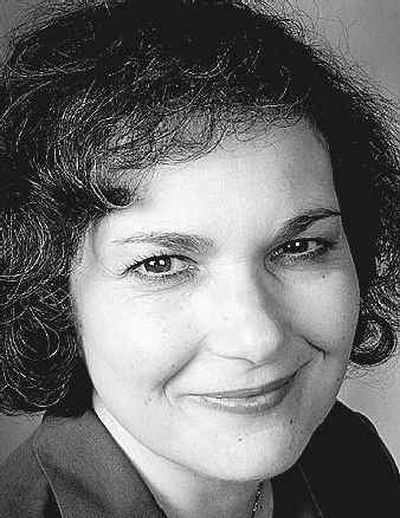Using history’s hindsight to make sense of now

It’s no excuse, but I was jet-lagged that morning in Seattle’s airport, waiting for the last flight home after a long journey. An Arab-looking young man nearby spoke to another Arab-looking young man in a language I didn’t recognize. When they sat next to my husband, I pretended to be taking a photo of him when really it was the “Arabs” I captured digitally.
What was I thinking? That they were plotting to take over the plane and I needed a photo? The incident came back to me Monday as I watched “In Time of War,” a documentary about the experiences of Japanese-Americans during World War II. Many were placed in internment camps, but some attended school, and that’s how five Japanese-American players ended up on Whitworth College’s basketball team in 1944.
About 15 years ago, history professor Dale Soden found the basketball photo and started asking questions. How did those students get to Whitworth? What were their lives like? Soden’s research led to the documentary, written, directed and co-produced by Andrea Palpant, a filmmaker with North by Northwest Productions. The 54-minute documentary is available – free – to all high schools within Washington state. Take advantage of this one, educators. It’s terrific.
The documentary teaches the past, but it forces viewers to ponder our present situation, though it’s not mentioned specifically in the film. Are we building toward a similar culture of suspicion, resentment – and even internment – for Muslims who live in the United States now? One in four Americans hold anti-Muslim views, according to the Council on American-Islamic Relations. Where does this negative perception ultimately lead? Back to the future?
After Pearl Harbor, Japanese-Americans were evacuated inland from the West Coast. They left behind property, businesses and income worth $350 million. The closest internment camp to the Inland Northwest was Minidoka, in southcentral Idaho. The Japanese-Americans lived in small, unheated rooms spread out over 950 acres, secured by barbed wire and patrolled by soldiers.
“When I go there it is kind of sad,” Spokane’s Ed Tsutakawa says of his memories. In the film, he and his wife, Heidi, revisit Minidoka, now a national monument. They met there more than 60 years ago.
Some of the young Japanese-American men enlisted in the military and proudly fought in the 442nd Regimental Combat Team. Some of the young people were allowed to attend college. Whitworth opened its doors to them, thanks to a president who had once been a missionary in Japan.
You choke up at the end of the documentary, awed by the resiliency of these Japanese-Americans. No one interviewed for the documentary expresses bitterness.
In the 1980s, the United States government officially apologized for Executive Order 9066; the internment was racially motivated and served no security purpose, a report concluded. But the damage was done.
“There is this black hole – 1941 through ‘46 – no one wants to talk about,” said Whitworth English professor Doug Sugano, a Japanese-American. “We don’t ever outgrow or outlive history.”
Are we creating another black hole now? I worry when I see Middle Easterners depicted as shady characters in TV shows. I worry when I read about feces smeared on a mosque in Fargo, N.D., and about a man of Portuguese descent, mistaken for an Arab, beaten by five white guys in Southern California. I worry when I click photos of Arab-looking men, rather than strike up conversations with them.
It’s an edgy time.
“The United States has always struggled with how to interpret the Constitution in time of war,” Soden said. “To this point in history, we haven’t responded to Muslims or Arab-Americans the way we did to Japanese-Americans. That could all change with another attack. Vigilance is important – vigilance to how we think about free speech and due process. These are the ongoing challenges of living in a democracy.”